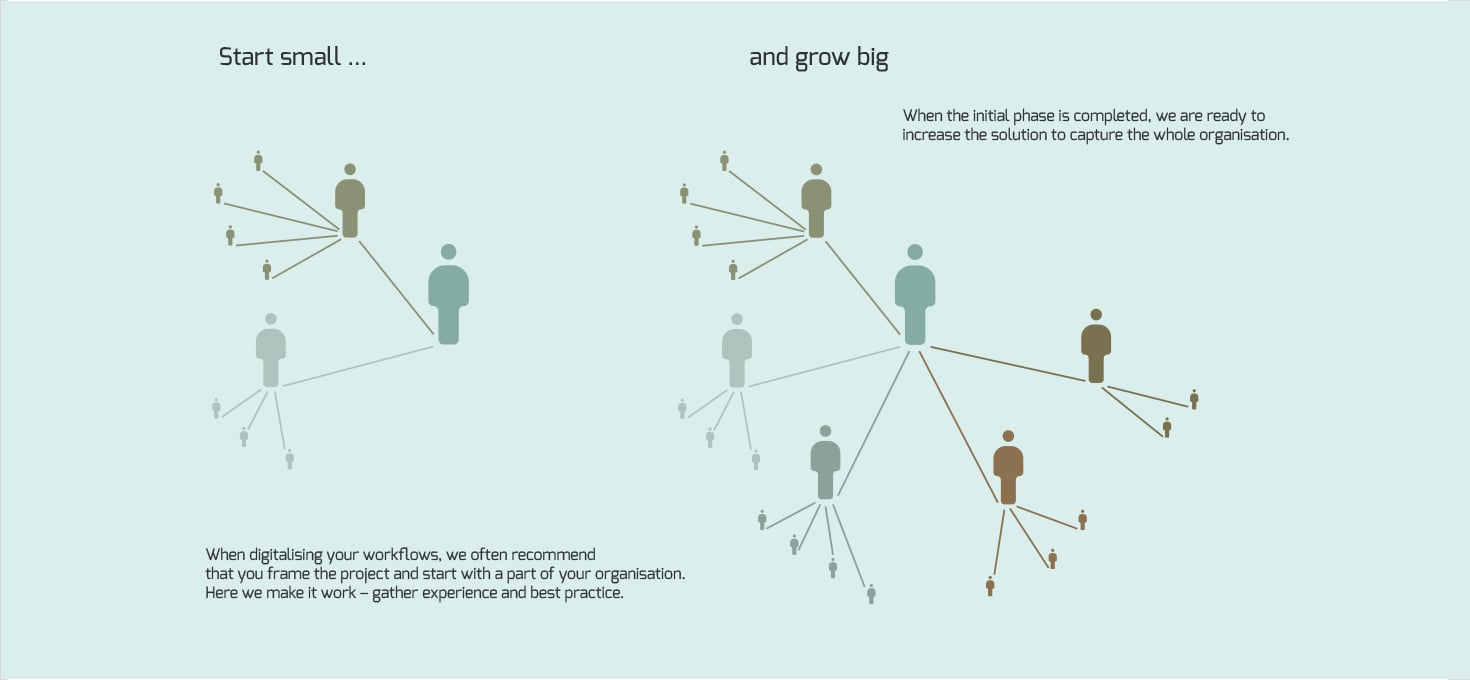Adopting Microbizz in the company, means to engage in the digital transformation of the business using Microbizz. This step consists typically of both roll out of the solution to the entire company and to expand the use of Microbizz in general. Success depends on f Microbizz being accepted and the change in the organisation embraced.
Microbizz is designed in a way, that enables you to start small, in a corner of the business and expand from there. That is a way to create micro-automations that are put together into complete processes and workflows. This is also the reason why it is called Micro-bizz.
Microbizz Speed Pilot
The Microbizz Speed Pilot allows you to start using Microbizz live in just one to three months, depending on the scope initiated with.
Microbizz is designed to allow going live with limited use of Microbizz within a selected business area. This ability is also why we call it Microbizz. You can digitalize your business one Micro part at the time. That allows for quick value realisation and a steep learning curve of what works for in your company.
Microbizz Speed pilot consists of three steps.
- Proof of Concept
- Pilot-Live
- Adoption
Microbizz Pilot-Live
Microbizz Pilot-Live means to operate on live data in Microbizz in a limited area of the business, using a limited part of Microbizz. Final Validation of Microbizz in the Company and establishing an internal Center of Excellence or “super user” capability is key. This step is very train-the trainer based. The Microbizz Consultants help the organisation to really learn and take control of Microbizz. Enable the organisation to become ready to start widening the use of Microbizz in the Company.
As part of the Pilot-live, missing integrations to other systems are prepared for and perhaps minor Extensions to Microbizz will be defined.
Microbizz Adoption
Adopting Microbizz in the company, means to engage in the digital transformation of the business using Microbizz. This step consists typically of both roll out of the solution to the entire company and to expand the use of Microbizz in general. Success depends of Microbizz being accepted and the change in the organisation embraced. Successful Microbizz companies display key traits:
- They have a strong and clearly defined purpose of why they run Microbizz
- They have one or more people in the organisation who really “owns the system” and act as Super Users or in bigger companies – as Center of Excellence
- They have strong senior management commitment and know how to exercise change into the organisation. Our Customers mastering this have a term for this. They call it to become Microbizzified. They operate faster, change quicker and use less resources on doing their business.
The Microbizz Speed Pilot implementation method also makes use of techniques of from leading organisational change management theory. This helps maturing and grow this skill in the organisation.
